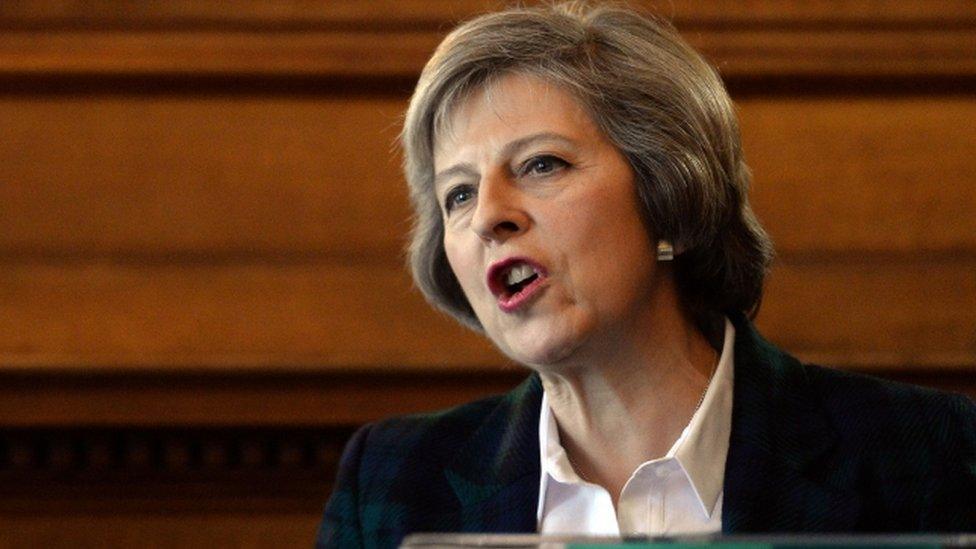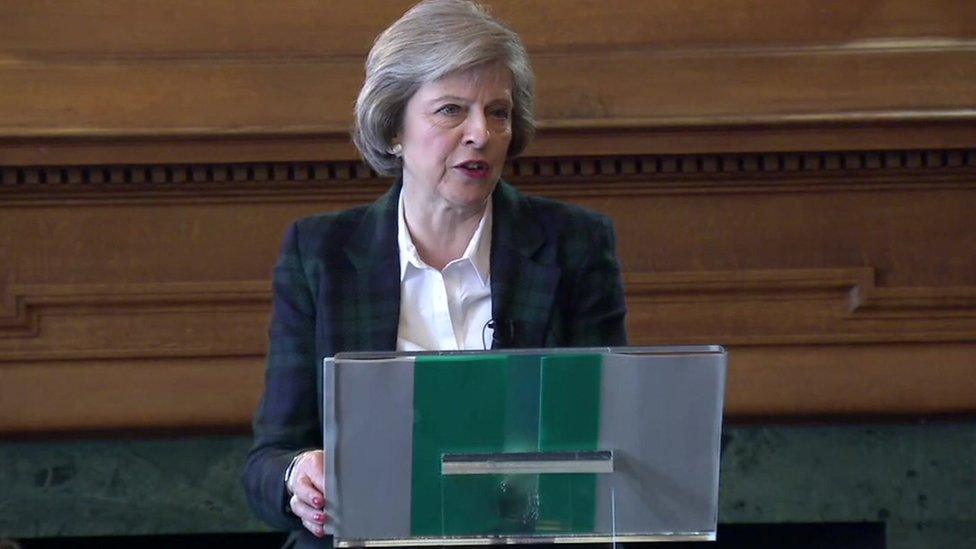Will PM welcome May's EU intervention?
- Published

After President Obama swung his hefty golf club into the debate last week, the Remain camp believed they were winning all of the arguments on the EU referendum.
They had the Outers "on the ropes" on the economy, and the weight of established opinion was building on their side day by day.
The home secretary, with the authority of her office and the sensitive nature of her department, was expected to add to that sense of momentum today, with her first full public explanation of her backing for the EU.
She did argue in favour of staying in. But while she was about it, Theresa May had a few extra thoughts for David Cameron that might not be quite so helpful.
Qualified support
Mrs May made it plain she thinks the EU should not merrily continue helping other countries to join the EU, warning against nations like Turkey and Albania joining and getting equal status - not quite the prime minister's position.
She suggested the UK should quit the European Convention on Human Rights, a separate treaty, not part of our membership of the EU - again, going far beyond anything the prime minister has ever said, even though the Conservative position has been to have our own British Bill of Rights and weaken the links with the Convention.
There was also strong, even if elegantly implicit, criticism of what many Conservatives see as the meek achievements of David Cameron's renegotiations with the rest of the EU. She said Britain had "forgotten how to lead" in the EU - hardly a proud endorsement.
And on the issues that so many voters worry about - immigration - Mrs May was clear that it was not possible to limit the numbers of immigrants who come here from the rest of the EU. Doesn't that rather undermine the government's official position that they can, and will, get immigration under a target of 100,000 every year?
'Reluctant remain'
The home secretary is one of the most senior politicians in the country. Of course, her backing of the Remain campaign is important. And it's certainly better for the prime minister and the Remain campaign to have her In, rather than Out.
But her qualified support suggests there are three, rather than two, positions at the top of the Conservative party - 'Remain', 'Leave', and perhaps now, 'Reluctant Remain'.
It was the Out campaign struggling to contain their internal differences. Tonight, it feels like cracks might appear on the other side too.
And remember, as the clock ticks down to the referendum itself, the clock is also ticking down to the day when David Cameron departs, whether on a timetable of his own choosing, or in the messy aftermath of a vote to leave the EU.
Surely that's not a thought that was at the back of the home secretary's mind?
- Published25 April 2016

- Published21 April 2016